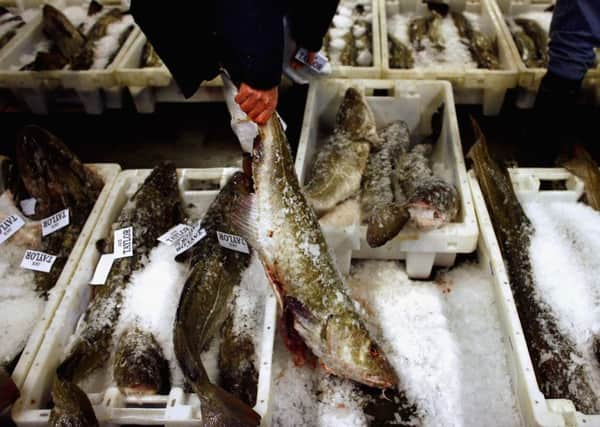Crackdown on mislabelled fish hailed ‘success’


The largest multi-species survey of fish labelling accuracy to date indicates a marked and sudden reduction of seafood mislabelling in supermarkets, markets and fishmongers in the EU.
Scientists in six European countries tracked samples of the mostly commonly consumed fish, including cod, haddock, tuna, hake and plaice, after a series of studies going back five years had shown mislabelling in up to 40 per cent of cases.
Advertisement
Hide AdAdvertisement
Hide AdIn the latest survey, of the 1,563 DNA sequence samples examined, just 77 (4.9 per cent) proved to be mislabelled.
It is thought that more transparent supply chains can lead to more sustainable exploitation and healthier oceans.
The study is part of the Label-fish project, supported by the EU Atlantic Area Programme and the Department for Environment, Food and Rural Affairs.
Co-author Dr Andrew Griffiths, from the University of Exeter, said: “I am very pleased with these results as they show that consumers can have more confidence in the accuracy of seafood labelling. They are also surprising as previous investigations detected much higher levels of mislabelling, it highlights just how seriously this problem is being addressed within the EU.”
The international collaboration carried out genetic testing of seafood sold in supermarkets, traditional markets and fishmongers in 19 European cities between 2013 and 2014, including Glasgow.
Species verification was carried out on fresh, frozen and tinned products labelled as, among others cod, tuna, haddock and monkfish.